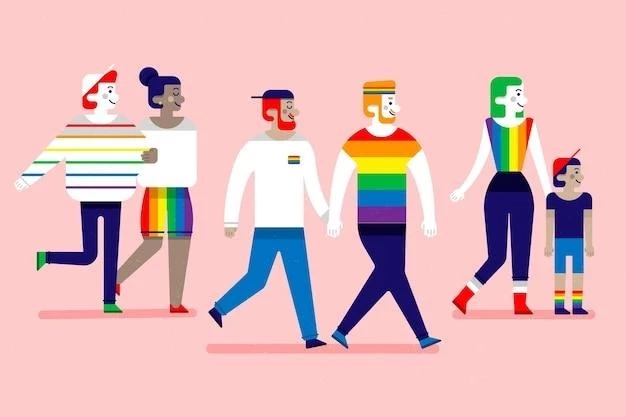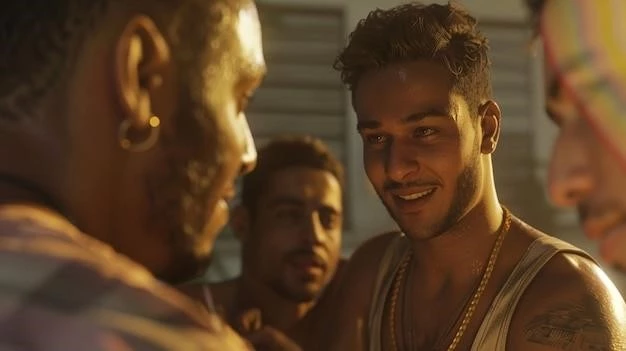The LGBTQ+ community has a rich and inspiring history, filled with individuals who have fought tirelessly for equality, challenged societal norms, and made significant contributions to various fields. Their stories are often marginalized or erased, but their impact on the world is undeniable.
This article highlights some of the most influential LGBTQ+ people in history, whose courage, activism, and artistry have helped pave the way for greater understanding and acceptance.
Early Pioneers and Activists
-
Karl Heinrich Ulrichs (1825-1895)
Considered by many to be the “father of the modern gay rights movement,” Ulrichs was a German jurist and scholar who pioneered the idea of homosexuality as a natural, inborn trait. He coined the term “Uranian” to describe same-sex attraction and wrote extensively on the subject, arguing for legal and social acceptance of homosexuals. Although his ideas were met with resistance during his lifetime, they laid the groundwork for future generations of activists.
-
Magnus Hirschfeld (1868-1935)
A German physician and sexologist, Hirschfeld was a leading advocate for LGBTQ+ rights in the early 20th century. He founded the Scientific-Humanitarian Committee, the world’s first organization dedicated to fighting for LGBTQ+ rights, and campaigned for the decriminalization of homosexuality. Hirschfeld also established the Institute for Sexual Science in Berlin, a pioneering research and advocacy center that provided sexual counseling, medical care, and support to LGBTQ+ individuals.

Breaking Barriers in Arts and Culture
-
Gertrude Stein (1874-1946)
An American novelist, poet, and art collector, Stein was a central figure in the Parisian avant-garde of the early 20th century. Her literary salons in Paris attracted some of the most prominent artists and writers of the time, including Pablo Picasso, Ernest Hemingway, and F. Scott Fitzgerald. Openly lesbian, Stein’s writing often explored themes of gender and sexuality, challenging traditional literary conventions.
-
Cole Porter (1891-1964)
A prolific American composer and songwriter, Porter was known for his witty lyrics, sophisticated melodies, and groundbreaking musicals. Despite living in a time when homosexuality was taboo, Porter’s music often contained subtle references to same-sex love and desire. His contributions to American musical theater continue to be celebrated today.
-
James Baldwin (1924-1987)
One of the most celebrated American writers of the 20th century, Baldwin fearlessly explored themes of race, sexuality, and social justice in his novels, essays, and plays. As a gay Black man, Baldwin’s experiences of racism and homophobia deeply informed his work, which challenged societal norms and gave voice to marginalized communities.
Fighting for Equality: The Stonewall Uprising and Its Legacy
-
Marsha P. Johnson (1945-1992)
A Black transgender woman and drag queen, Johnson was a prominent figure in the Stonewall Uprising of 1969, a pivotal event in the fight for LGBTQ+ rights. She co-founded the Street Transvestite Action Revolutionaries (STAR) with Sylvia Rivera, providing housing and support for homeless LGBTQ+ youth. Johnson’s tireless activism and advocacy for transgender rights continue to inspire generations of activists.
-
Sylvia Rivera (1951-2002)
A Latina transgender activist and drag queen, Rivera was another key figure in the Stonewall Uprising. Alongside Marsha P. Johnson, she co-founded STAR and dedicated her life to fighting for transgender rights. Rivera’s passionate advocacy for the most marginalized members of the LGBTQ+ community, particularly transgender people of color, helped bring greater visibility to their struggles.
-
Harvey Milk (1930-1978)
One of the first openly gay elected officials in the United States, Milk served on the San Francisco Board of Supervisors. He was a tireless advocate for LGBTQ+ rights, fighting for anti-discrimination laws and greater visibility for the gay community. Milk’s assassination in 1978 sent shockwaves through the LGBTQ+ community and beyond, but his legacy as a pioneering activist continues to inspire.
Modern-Day Trailblazers
-
Audre Lorde (1934-1992)
A Black lesbian feminist writer and activist, Lorde’s powerful voice explored the intersections of race, gender, sexuality, and class. Her writings on the importance of embracing difference, challenging power structures, and fighting for social justice continue to resonate deeply today.
-
Larry Kramer (1935-2020)
An American playwright, author, and LGBTQ+ rights activist, Kramer was a leading voice in the fight against the AIDS epidemic. He co-founded Gay Men’s Health Crisis and ACT UP, organizations that played crucial roles in raising awareness about AIDS, demanding government action, and advocating for people living with HIV. Kramer’s passionate activism and unflinching writing helped change the course of the AIDS crisis.
-
Edith Windsor (1929-2016)
An American LGBTQ+ rights activist, Windsor became a key figure in the fight for marriage equality. After her wife, Thea Spyer, died in 2009, Windsor sued the US government for refusing to recognize their marriage, which was legally performed in Canada. Her landmark case, United States v. Windsor, led to a Supreme Court ruling that struck down a key part of the Defense of Marriage Act (DOMA), paving the way for nationwide marriage equality.

Conclusion
These individuals represent just a small fraction of the countless LGBTQ+ people who have shaped history and continue to make a difference in the world. Their stories of courage, resilience, and unwavering pursuit of equality serve as a powerful reminder that the fight for justice and acceptance is an ongoing one. By remembering their contributions and continuing their work, we honor their legacies and create a more just and equitable world for all.










